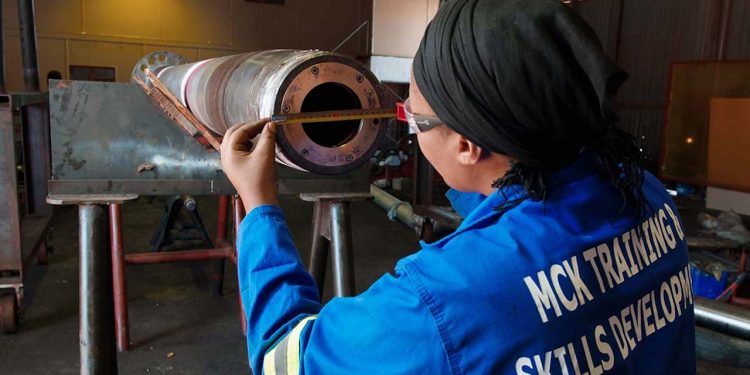An engineering company at Saldanha Bay in South Africa that employed five people in 2007 has grown into a multifaceted organisation with 72 employees, thanks to its association with the deep-sea hake industry. A second company has grown into one of the largest fully contained load transporters in Cape Town, with a fleet of over 90 trucks, semi-trailers and refrigerated vehicles.
The significant growth and diversification of black-owned MCK Engineering and Moosa’s Enterprises is documented in The impact of the hake deep sea trawl fishery on small, medium and micro enterprises study, released in Cape Town.
Conducted by independent economists Genesis Analytics, the study shows that the sustainability and international competitiveness of the hake deep-sea trawl fishery are vitally important to 1041 small, medium and micro enterprises (SMMEs) that provide goods and services to the industry.
‘The National Development Plan identifies SMMEs as the most likely source for job creation in South Africa, and places particular emphasis on SMMEs that provide services to larger firms,’ said Felix Ratheb, chairman of the South African Deep-Sea Trawling Industry Association (SADSTIA).
‘This is exactly what this study reveals. Our industry’s support of SMMEs is creating value and jobs, often in rural and semi-rural areas where economic opportunities are scarce.’
The hake deep-sea trawling industry spent a total of R624.4 million with SMMEs in 2019, with most of this spend directed towards businesses in the Western and Eastern Cape provinces, including non-metropolitan areas like Gansbaai, Mossel Bay, Saldanha Bay, St Helena Bay and Veldrif.
A significant proportion (51%) of the R624.4 million the industry spends annually with SMMEs is directed at black- and female-owned businesses.
At 39%, engineering services account for the industry’s largest expenditure with SMMEs. The second largest category of products and services supplied by SMMEs is fish processing, which includes cold storage, packaging fish products and the provision of ingredients for the creation of value-added seafood. Mechanical services, including the repair, maintenance and refurbishment of fishing vessels and processing facilities, is another important category of goods and services.
Felix Ratheb is hopeful that the information presented by Genesis Analytics will contribute to the development of precise fishery-specific policies ahead of the Fishing Rights Allocation Process (FRAP) that is scheduled to start this year.
The Department of Environment, Forestry & Fisheries is preparing to allocate rights to twelve commercial fisheries in 2021. Among these is the hake deep-sea trawl fishery, which is by far South Africa’s most valuable fishery. It contributes an estimated R6.7 billion to the South African economy each year, and provides 7300 direct jobs and an estimated 29,200 indirect jobs.
‘What this study shows is that the stability and success of the hake deep-sea trawling industry is vitally important to SMMEs across the value chain. Securing the viability of SMMEs associated with the hake deep-sea trawl fishery is a better economic choice than restructuring the fishery to accommodate large numbers of new rights holders,’ he said.
The impact of the hake deep sea trawl fishery on small, medium and micro enterprises is the latest in a series of studies that have advised against the fragmentation of the hake deep-sea fishery in FRAP 2021, which would remove a substantial tonnage from established companies in order to allocate it to many small new entrants.
Studies indicate that fragmentation will materially reduce the socio-economic contribution of the HDST industry for little or no gain in transformation. The hake deep-sea trawling industry is 66.6% black-owned and the top three companies active in the fishery are level one contributors to black economic empowerment.
‘The policies that underlie FRAP 2021 need to be carefully formulated and aligned to the Government’s priorities of preserving and creating jobs, encouraging investment and promoting inclusive growth,’ Felix Ratheb concluded.









